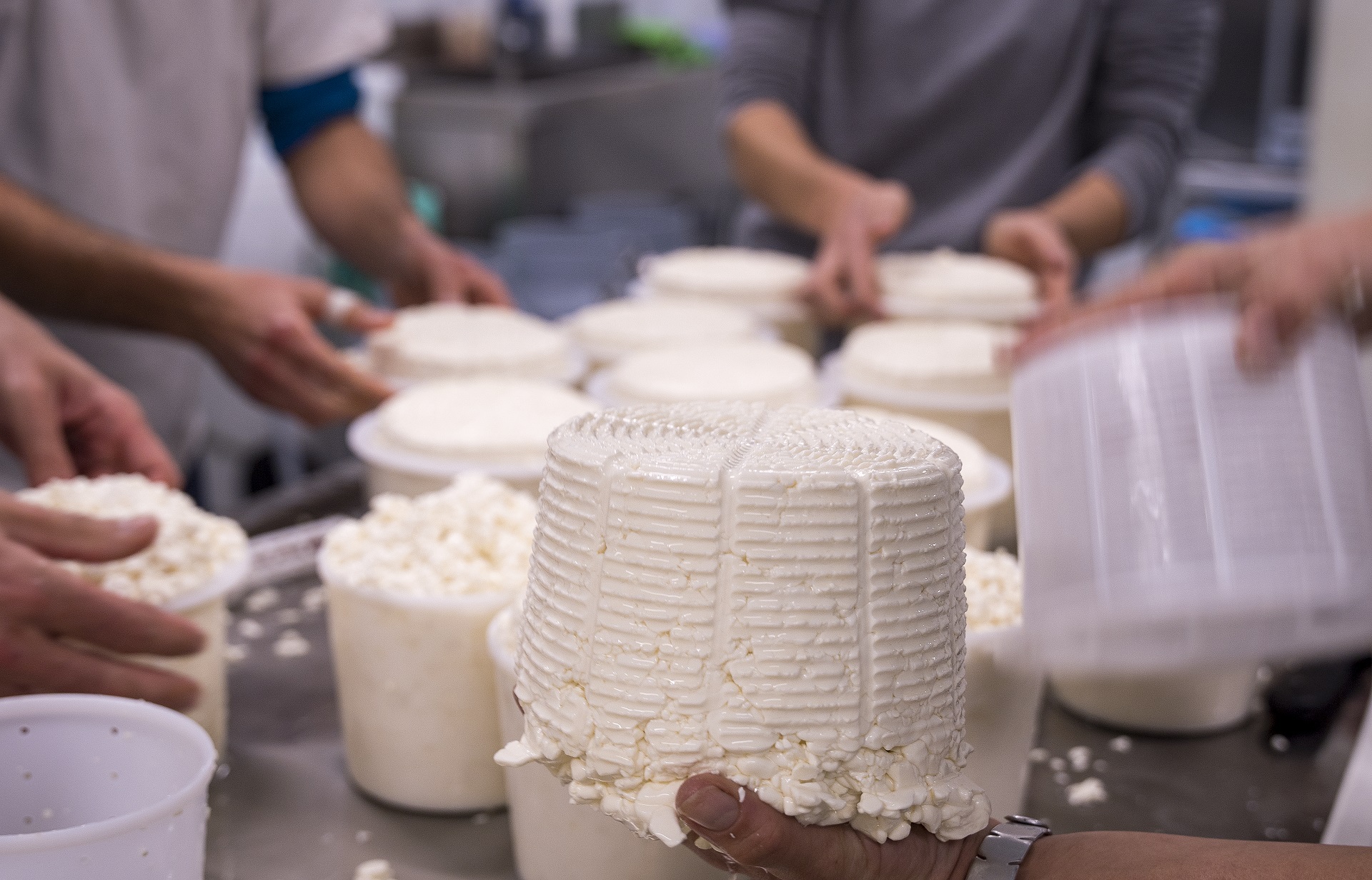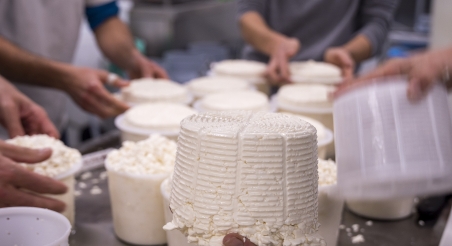Does the province of Barcelona have enough shared food processing plants and abattoirs to serve agri-food entrepreneurs? The fifth BCN Smart Rural Data Bite, entitled "Artisan Territory," explores the quantity and typology of the offer of shared agri-food processing facilities in the Barcelona region, infrastructures that are essential to support the transition to healthier and more sustainable food systems.
According to this new analysis report, there are fifteen shared agri-food processing plants and abattoirs in the province of Barcelona. Nine are public initiatives and, of these, six have had the support of the Barcelona Provincial Council: the Montseny slaughter and meat-cutting room, in addition to five collective facilities born within the framework of the BCN Smart Rural. The agri-food processing spaces supported by this European project are very varied and include the Bages vegetable processing facility, the Lluçanès cheese dairy, the Central Catalonia mobile abattoir, the Montserrat Rural Park meat-cutting space and the small modular abattoir in Moianès.
Other interesting data that emerge from the study are the following:
- The Vallès Oriental is the county of the province of Barcelona with more shared facilities for agri-food processing. With five workshops and collective abattoirs, the region stands out for enjoying a good balance between the predominant type of crops and the processing spaces available.
- In Barcelonès and Moianès there are two collective spaces for agri-food processing, while in Anoia, Baix Llobregat and Maresme there is only one.
- Osona is a special case, because, in addition to enjoying the first collective cheese dairy in Catalonia, the county will soon start receiving visits from the mobile abattoir. This shared truck has its base of operations in Moianès, but will also provide coverage for shepherds and small livestock farmers in Bages, Berguedà and Osona.
- In addition to the mobile abattoir, at Bages, we find two collective spaces for agri-food processing: a meat-cutting facility in Marganell and a vegetable processing workshop in Manresa.
- The counties of the province that do not have shared agri-food processing facilities or abattoirs are Alt Penedès, Garraf and Vallès Occidental. Berguedà does not have a fixed one either, but, as we have seen before, it will benefit from the services of the slaughter trailer.
- Of the fifteen collective spaces for agri-food processing that currently exist in the province of Barcelona, eleven are workshops and the remaining four are small meat-cutting and/or slaughter rooms.
- Among the shared workshops, the vast majority are dedicated to transforming fruit and vegetables from local farmers: out of the eleven that exist in the territory, seven are dedicated to elaborate products from local farmers' gardens and orchards. There are also two cereal manufactories, one for beer and one for dairy.
An encouraging panorama, but with notable shortcomings
To obtain this data, the authors of the "Artisan Territory" report have started from the map of shared agri-food facilities of the Tres Cadires Cooperative, they have contacted all the spaces shown there to get up-to-date data and have then checked and expanded it with further research. In addition, to find out the specific needs of the province of Barcelona concerning agri-food processing and slaughter facilities, they have studied the types of crops that occupy the most surface area in each county, as well as the distribution of agricultural and livestock holdings in the territory.
Cross-checking the data generated has drawn a very encouraging picture, but with notable shortcomings, especially in the north and south areas of the Barcelona demarcation. As Sònia Callau, head of the Territorial Agrarian Directorate of the Barcelona Provincial Council, states, «To move towards sustainable and local food systems it is very important to have a network of shared facilities that can provide service to the entire territory». «If we want to effectively energize local production and facilitate citizens' access to local food, we should work together with more local governments to identify possible needs and plan new infrastructures», adds Callau.
For more information about this data, please contact Lucía Nieto and Daniel Farré, land engineers and GIS experts of the BCN Smart Rural strategy.
— BCN Smart Rural Editorial —



